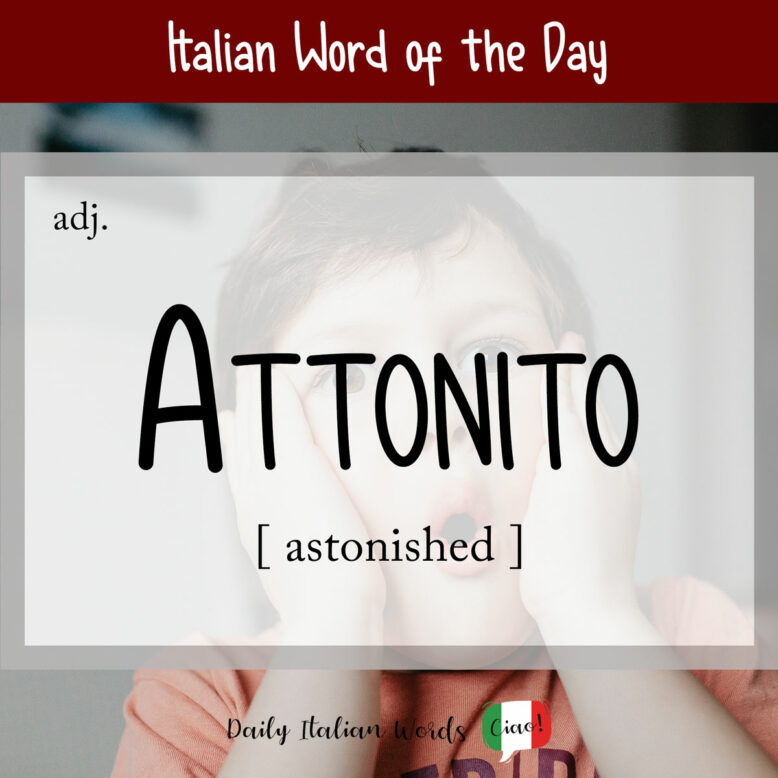One way of saying astonished, speechless or shocked in Italian is attonito. Being an adjective, it also has a feminine form (attonita), as well as masculine and feminine plural forms (attoniti and attonite).

The word has an interesting origin according to Treccani. It comes from the Latin attonitus which itself is a derivative of the verb tonare (to thunder). The association between astonishment and thunder stems from the idea that people are easily shocked by the crash of thunder.
Attonito usually appears in the company of the following verbs, all of which translate as to be astonished (by).
- essere attonito (per / da) = literally ‘to be astonished (by)’
- rimanere attonito (per / da) = literally ‘to remain astonished (by)’
- restare attonito (per / da) = literally ‘to stay astonished (by)’
Non appena egli posò gli occhi sulla principessa, rimase attonito dalla sua bellezza.
As soon as he set eyes on the princess, he was stunned by her beauty.

It is often used to describe the appearance of the face, as in a sguardo attonito (shocked gaze) or espressione attonita (astonished expression).
Some possible synonyms for attonito include:
- stupito = amazed, astonished
- sorpreso = surprised
- allibito = stunned, astounded (negative)
- sbigottito = startled, dismayed
- meravigliato = astonished, amazed (positive)
- impressionato = shocked, impressed
Heather Broster is a graduate with honours in linguistics from the University of Western Ontario. She is an aspiring polyglot, proficient in English and Italian, as well as Japanese, Welsh, and French to varying degrees of fluency. Originally from Toronto, Heather has resided in various countries, notably Italy for a period of six years. Her primary focus lies in the fields of language acquisition, education, and bilingual instruction.


